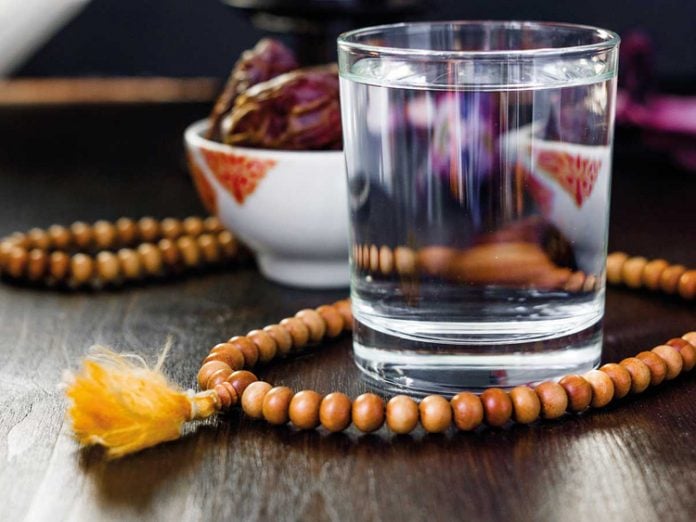Fasting during the holy month of Ramadan is a spiritual practice observed by all Muslims across the world for reflection and devotion.
However, abstaining from food and drink from dawn to dusk can pose challenges to the body, especially in hot climates. This year’s Ramadan presents particular concerns about dehydration due to the climate conditions.
Dehydration can adversely affect health, making it crucial to prioritize hydration during fasting.
Without further ado, here are ways to stay hydrated during Ramadan.
- Drink plenty of water
The best thing to prevent dehydration is by increasing your water consumption. During non-fasting hours, aim to consume at least eight glasses of water to maintain fluid balance in your body.
However, try not to gulp too much water at once to avoid bloating and interference with your digestion system. Rather, take plenty of water in frequent sips.
Also, avoid drinking iced water during iftar as it does not replenish your thirst but can cause your blood vessels to contract and cause indigestion.
- Take hydrating foods
During iftar and sahur, incorporate foods with high water content in your meal to support hydration.
Include fruits such as watermelon, oranges, and cucumbers, and hydrating drinks like coconut water, and fruit juices, to replenish fluids and electrolytes lost during fasting.
These fruits and vegetables are rich in water and fiber so they can stay in the intestines for a while and reduce thirst.
- Avoid water-draining foods
While some foods can help you stay hydrated, others can make you dehydrated. These include fried food, sugary foods and caffeine.
Limit your intake of caffeinated and sugary beverages such as coffee, tea, soda, and energy drinks, as these can contribute to dehydration.
Caffeine and sugar can have diuretic effects, increasing the production of more urine ultimately leading to dehydration.
Replace these water-draining foods with fruits like watermelon and oranges, healthy green, water, or natural fruit juices.
- Minimise sun exposure and physical activity
During Ramadan, it is essential to minimise sun exposure and physical activity, especially during the hottest parts of the day.
Direct sunlight, strenuous exercise and physical activity can increase the risk of dehydration, leading to excessive sweating and fluid loss from the body.
If possible, schedule your outdoor outings and errands for early morning or late afternoon when temperatures are cooler.
You do not have to skip your exercise, however. The best time to exercise during Ramadan is after iftar when your body has been provided with food and drink to supply energy, and will have enough time to replenish lost fluids during exercise.
- Dress appropriately
Regarding hydration, your clothing plays a major role in your body temperature and, through it, your hydration levels.
Opt for loose-fitting, lightweight fabrics such as cotton or linen and lighter colours that allow air circulation and help evaporate your sweat. Also, avoid tight or synthetic materials that can trap heat and moisture, leading to discomfort and increased perspiration.
Copyright 2025 TheCable. All rights reserved. This material, and other digital content on this website, may not be reproduced, published, broadcast, rewritten or redistributed in whole or in part without prior express written permission from TheCable.
Follow us on twitter @Thecablestyle

